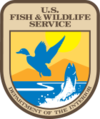Federal Register
Posted: November 25, 2019
In accordance with the Paperwork Reduction Act of 1995, we, the U.S. Fish and Wildlife Service (Service), are proposing to renew an information collection.
Abstract: The Migratory Bird Treaty Act of 1918 (16 U.S.C. 712(1)) authorizes the Secretary of the Interior, in accordance with the treaties with Canada, Mexico, Japan, and Russia, to “issue such regulations as may be necessary to assure that the taking of migratory birds and the collection of their eggs, by the indigenous inhabitants of the State of Alaska, shall be permitted for their own nutritional and other essential needs, as determined by the Secretary of the Interior, during the Alaska spring and summer migratory bird subsistence harvest seasons so as to provide for the preservation and maintenance of stocks of migratory birds.” Article II(4)(b) of the Protocol between the United States and Canada amending the 1916 Convention for the Protection of Migratory Birds in Canada and the United States provides a legal basis for Alaska Natives to be able sell handicrafts that contain the inedible parts of birds taken for food during the Alaska spring and summer migratory bird subsistence harvest. The Protocol also dictates that sales would be under a strictly limited situation pursuant to a regulation by a competent authority in cooperation with management bodies. The Protocol does not authorize the taking of migratory birds for commercial purposes.
In 2017, we issued a final rule (82 FR 34263), developed under a co-management process involving the Alaska Department of Fish and Game and Alaska Native representatives, that amended the permanent migratory bird subsistence harvest regulations at 50 CFR 92.6 to enable Alaska Natives to sell authentic native articles of handicraft or clothing that contain inedible byproducts from migratory birds that were taken for food during the Alaska migratory bird subsistence harvest season. Article II(4)(b) of the Protocol dictates that sales will be under a strictly limited situation. Allowing Alaska Natives to sell a limited number of handicrafts containing inedible migratory bird parts provides a small source of additional income that we conclude is necessary for the “essential needs” of Alaska Natives in predominantly rural Alaska. This limited opportunity for sale is consistent with the language of the Protocol and is expressly noted in the Letter of Submittal to be consistent with the customary and traditional uses of Alaska Natives. Allowing this activity by Alaska Natives is also consistent with the preservation and maintenance of migratory bird stocks.
Eligibility will be shown by a Tribal Enrollment Card, Bureau of Indian Affairs card, or membership in the Silver Hand program. The State of Alaska Silver Hand program helps Alaska Native artists promote their work in the marketplace and enables consumers to identify and purchase authentic Alaska Native art. The insignia indicates that the artwork on which it appears is created by hand in Alaska by an individual Alaska Native artist. Only original contemporary and traditional Alaska Native artwork, not reproductions or manufactured work, may be identified and marketed with the Silver Hand insignia. To be eligible for a 2-year Silver Hand permit, an Alaska Native artist must be a full-time resident of Alaska, be at least 18 years old, and provide documentation of membership in a federally recognized Alaska Native tribe. The Silver Hand insignia may only be attached to original work that is produced in the State of Alaska.
The final rule requires that FWS Form 3-2484 (a simple certification which is not subject to the PRA) or a Silver Hand insignia accompany each Alaska Native article of handicraft or clothing that contains inedible migratory bird parts. It also requires all consignees, sellers, and purchasers retain this documentation with each item and produce it upon the request of a law enforcement officer. The final rule also requires that artists maintain adequate records of the certification or Silver Hand insignia with each item and requires artists and sellers/consignees provide the documentation to buyers. These recordkeeping and third-party notification requirements are subject to the PRA and require OMB approval.
More Notices
Notice of Cancellation of Environmental Impact Statement for Proposed Coquille Indian Tribe Fee-To-Trust and Gaming Facility Project, City of Medford, Jackson County, Oregon
Energy and Mineral Development Program (EMDP); Solicitation of Proposals
Public Water System Supervision Program Revisions for the Navajo Nation
Notice of Public Meeting of the Alaska Advisory Committee
Migratory Bird Hunting; Migratory Bird Hunting Regulations on Certain Federal Indian Reservations and Ceded Lands for the 2020-21 Season
Solicitation of Nominations for Membership To Serve on Tribal Advisory Council
Final Waivers and Extensions of the Project Periods for the American Indian Vocational Rehabilitation Services Training and Technical Assistance Center
Agenda and Notice of Public Meeting of the South Dakota Advisory Committee
Complete Archive
Energy and Mineral Development Program (EMDP); Solicitation of Proposals
Public Water System Supervision Program Revisions for the Navajo Nation
Notice of Public Meeting of the Alaska Advisory Committee
Migratory Bird Hunting; Migratory Bird Hunting Regulations on Certain Federal Indian Reservations and Ceded Lands for the 2020-21 Season
Solicitation of Nominations for Membership To Serve on Tribal Advisory Council
Final Waivers and Extensions of the Project Periods for the American Indian Vocational Rehabilitation Services Training and Technical Assistance Center
Agenda and Notice of Public Meeting of the South Dakota Advisory Committee
Complete Archive

